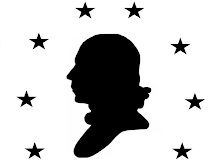The Georgetown Federalist Society is one of the most active student groups on campus and also may be one of the most misunderstood. So just to clarify, the Federalists were a bunch of old white guys, the Federalist Society, however, is not. I should know, considering that I, the chapter President, am neither old, white, or a guy. I am actually quite young, very black, and most certainly a female.
I have started a new paragraph to give you time to recover from the shock. Now let’s move on. Also despite popular belief, the Federalist Society is about ideas NOT about politics. We are a non-partisan, non-profit organization, made up of conservatives and libertarians. The Society agrees on only three broad principles:
- that the state exists to preserve freedom,
- that the separation of governmental powers is central to our Constitution, and
- that it is emphatically the province of the judiciary to say what the law is, not what it should be. And no, there is no secret book somewhere containing another set of super secret, right-wing conspiracy principles: this isn’t a movie and I’m not Julia Roberts, so sorry, the Federalist Society really is what it says it is.
So now that we’ve cleared the air and you know that I am not an old, white guy who has hidden a subliminal right-wing conspiracy message in this article, you can read on without fear or malice. But you may now be thinking, well if you aren’t a right-wing conspiracy bent on world domination, then what could you possibly do? I’m glad you asked. The Federalist Society seeks to dispel the myth that there is no such thing as a reasonable conservative or libertarian legal argument. These ideas do exist, whether you hear about them in the classroom or not. And even if you have liberal ideas and decide to live in a nice little bubble where everyone agrees with you and where your ideas and beliefs must be right (left?) because it is the only point of view presented to you, that bubble will eventually burst. There are smart, reasonable conservatives and libertarians in the legal community and just stating the truth about the law as you see it is not going to be enough to win them over and shouldn’t be enough to win in any court of law. The Federalist Society wants other conservatives and libertarians in the legal community to know that are not alone; they also want liberals in the legal community to know that they are not alone.
Everyone, especially every law student, should be forced to figure out why they believe what they believe about how the government should be run and how judges should do their jobs. As a conservative-with-a-dash-of-libertarian at Georgetown, I continually come face to face with people who strongly disagreed with my beliefs about the law, the Constitution, and the role of the judiciary. And every day I have become a better student, with better arguments, because of the opposition I face. So I would like to thank all of those at Georgetown—liberals, conservatives, and libertarians alike—who have engaged me intelligently and helped me strengthen my various conservative and libertarian arguments. So as President of the Georgetown Federalist Society, I’d like to give back to the liberal community here at Georgetown by returning the favor. I urge you to burst the bubble, come to our events, and make your arguments even stronger. I mean, if you were a lawyer at trial and opposing counsel offered to let you take a look at all of their plans and strategies, wouldn’t you jump at the chance?
And now for the shameless plug. On Wednesday, September 23rd at 7 p.m. in Hart Auditorium the Georgetown Federalist Society will be hosting a panel on “New Media & the Law” featuring David Lat from Above the Law, Tony Mauro from the National Law Journal, and Matt Welch from Reason Magazine. The event will be moderated by Eileen O’Connor, adjunct professor at Georgetown and former reporter and bureau chief at CNN. It will be followed by a reception. I think that new media has dramatically changed how events in the legal community are covered, which is re-shaping how the legal community, especially law firms, communicate with their employees and with the outside world. Has it made things worse or better? Is it truly going to make things more transparent? I don’t know, come listen to our panelists and then you decide. Hope to see you all there and thanks for reading.

1 comment:
Great! I wish you guys could inspire a Federalist Society here in India.
(Although here in India, the inspiration would have to be only conservative-libertarian legal principles, and not the Indian constitution because it is a little, ummm, too ambiguous)
Post a Comment